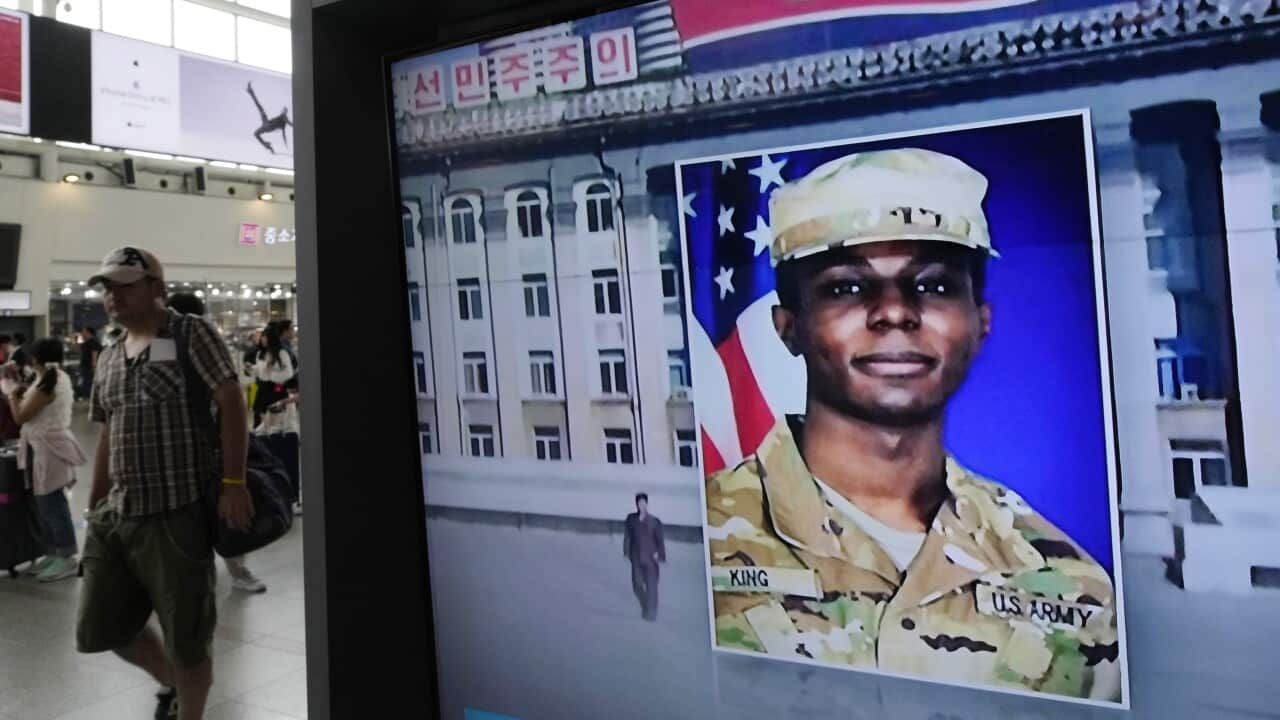Key Points
- King had entered North Korean territory while on tour of South Korea in July.
- He was treated by North Korea as an illegal immigrant.
- North Korea's news agency stated King was "disillusioned about the unequal US society".
Private Travis King, the United States soldier who ran into North Korea in July, is in US custody and heading home after being expelled by North Korea into China, the US says.
While details about the diplomacy that led to King's transfer remained scarce, the positive resolution of the case was a rare example of co-operation between the United States, North Korea and China.
King, 23, made a sudden dash into North Korea from the South on 18 July while on a civilian tour of the Joint Security Area on the heavily fortified border between the neighbours and was immediately taken into North Korean custody.
The incident triggered heated discussions inside the US government but its officials declined to declare him a prisoner of war.
For its part, North Korea appears to have treated his case as one of illegal immigration.
'King was disillusioned about the unequal US society'
North Korea's KCNA state news agency said King had been expelled after admitting to entering North Korea illegally because he was "disillusioned about unequal US society".
North Korea's decision, published by KCNA, detailed the final results of an investigation into King's border crossing.
Last month, it reported interim findings that he wanted refuge in North Korea or elsewhere because of maltreatment and racial discrimination within the US army.
"King confessed that he illegally intruded into the territory of the DPRK as he harboured ill feeling against inhuman maltreatment and racial discrimination within the US army and was disillusioned about the unequal US society," KCNA said.
DPRK refers to North's official name, the Democratic People's Republic of Korea.
Release follows months of intense diplomacy
US officials, citing US diplomatic representatives who saw King as he was departing China, told reporters he appeared to be in good health and spirits and was "very happy" to be on his way home.
He was able to speak with his family after his release from North Korea.
His release followed months of intense diplomacy, the US officials said, adding that no concessions were made to the North in exchange for King.

North Korea appears to have treated Travis King's case as one of illegal immigration. Source: EPA / JEON HEON-KYUN
Sweden has been the "protecting power" in North Korea for the United States, which has no diplomatic representation in the country.
Jonathan Franks, spokesman for King's mother Claudine Gates, said: "Ms Gates will be forever grateful to the United States army and all its interagency partners for a job well done."
King's uncle Myron Gates told ABC News in August that his nephew, who is black, experienced racism during his military deployment and that after he spent time in a South Korean jail, he did not sound like himself.










